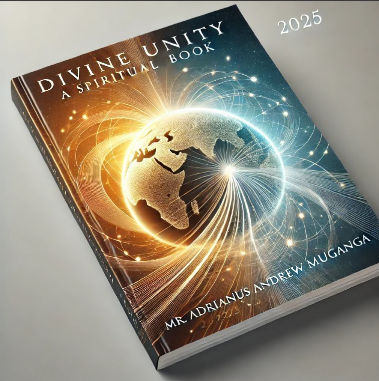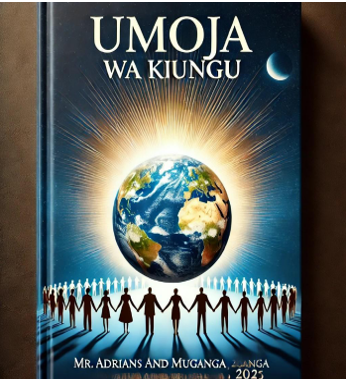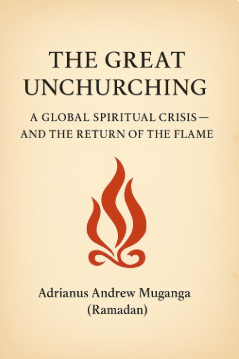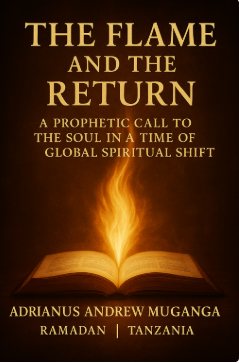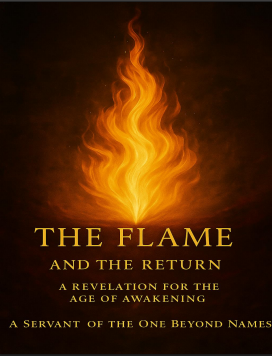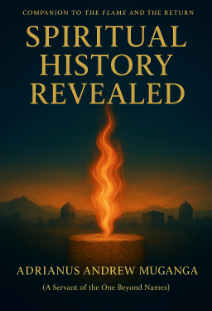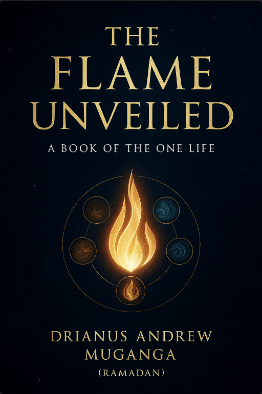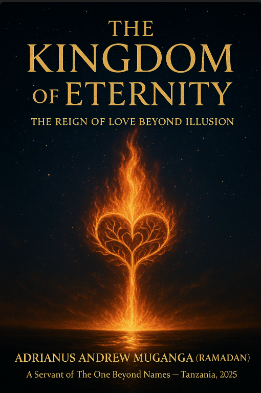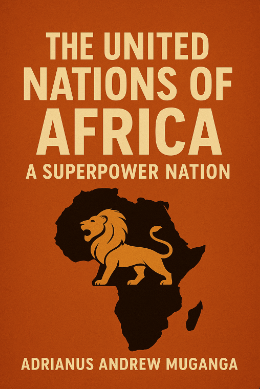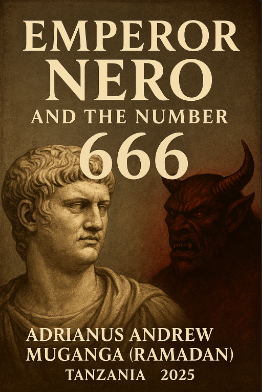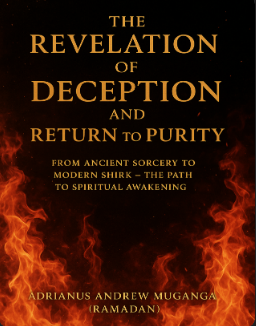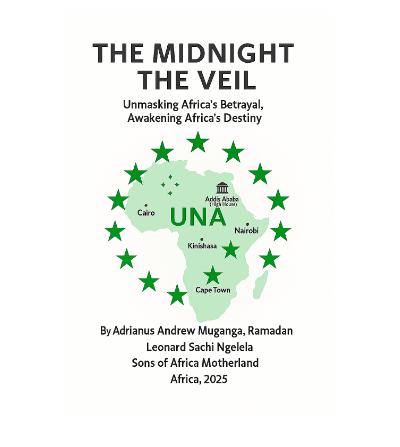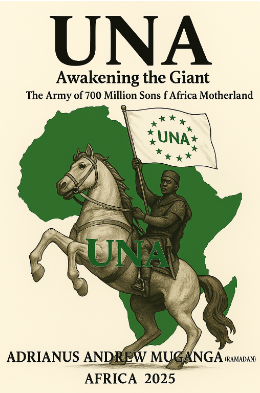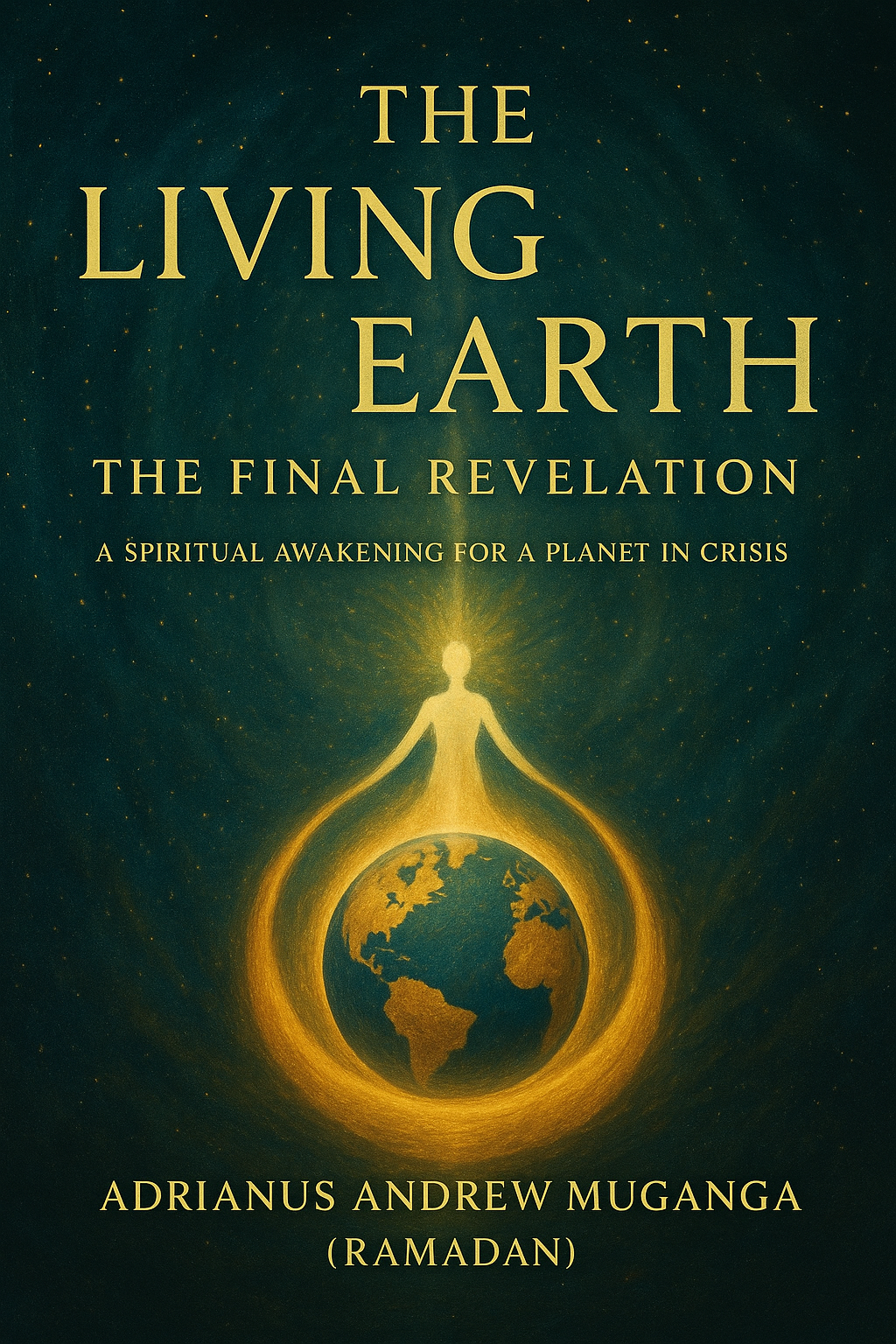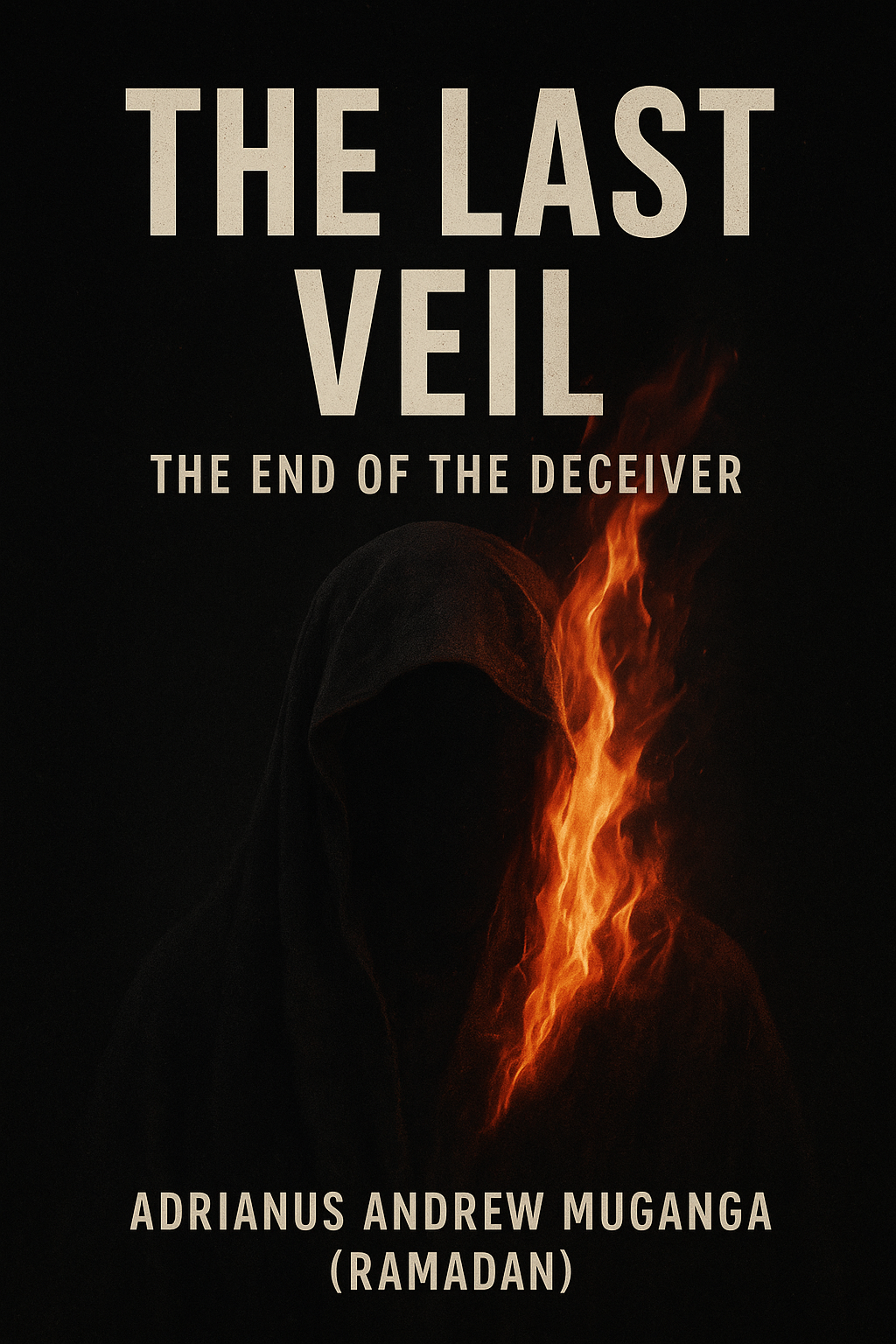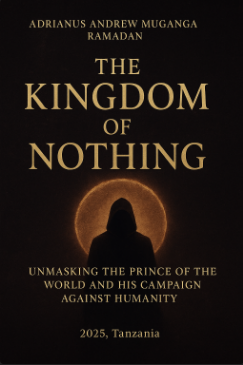
The Kingdom of Nothing
Subtitle: Unmasking The Prince Of The World — The Path From Pride To Nothingness And The Eternal Return To God’s Love
Author: Adrianus Muganga
The Kingdom of Nothing: Unmasking the Prince of the World by Adrianus Andrew Muganga (Ramadan) is the fourth book in a revelation series exploring humanity’s struggle against pride, illusion, and spiritual deception. Rooted in both the Bible and Qur’an, it traces the fall of Iblīs, the temptation of Adam and Eve, and Cain’s murder of Abel as the beginnings of a hidden campaign against humanity. Through history and into the modern age, the adversary disguises himself in empires, religions, governments, media, technology, and even family life, promising power and fulfillment but leading only to emptiness. The book warns that all kingdoms built on pride eventually collapse into nothing, while only God’s eternal love endures. Combining personal testimony, mystical reflection, and practical lessons, the author calls readers to awaken, surrender pride, and rediscover the divine Flame within. Ultimately, this is not a message of fear, but of freedom, hope, and eternal
Keywords for this book
You can only order 1 ebook at a time
Book summary
The Kingdom of Nothing: There are stories that are told for comfort, and there are stories that are told to awaken. *The Kingdom of Nothing* belongs to the second. It is not a book of theories, nor of philosophy, but of unveiling — a revelation of the hidden forces that have shaped human history from the beginning until today, and the final truth that strips every mask away. At the center of this book is the figure long concealed behind shadows, known by many names: Iblīs, the Prince of the World, the King of Darkness, the Whisperer, the Adversary. His story is as old as creation itself, beginning with the command that both angels and jinn bow before the newly formed human being — the one made in the image of God, clothed in all elements, and bearing the living Flame of the Creator within. Angels bowed in obedience, jinn bowed in reverence — but Iblīs refused. He looked only at the dust of humanity and not at the divine Flame within. In pride, he declared, *“I am of fire, and he is of clay — I am greater.”* That refusal was his fall, and from that fall was born his lifelong campaign: to make humanity forget who they truly are, to blind them to the divine image within, and to enslave them in illusions of pride, wealth, power, and control. The story unfolds step by step. It begins in Eden, where Iblīs whispered doubt into Adam and Eve. It continues with Cain and Abel, where envy became blood, and in Cain’s city, where the first pattern of empire was born: pride, violence, domination. From there, the adversary moved into kingdoms and empires — Babel, Egypt, Babylon, Rome — always whispering the same lie: *“Make a name for yourself. Take, grasp, dominate. You are the master.”* The book shows how this whisper, though ancient, has never ceased. In every age it reappears, wearing new masks: kings declaring themselves gods, prophets corrupted by pride, church leaders bowing to power, systems that glorify wealth while crushing the poor. The adversary never fights openly. His genius is in disguise. He appears in temples and palaces, in art and music, in ideologies and technologies, even in miracles that dazzle but enslave. In the 21st century, his campaign is more polished than ever. He hides in global systems of gambling that trap millions of youth; in music that glorifies lust, violence, and rebellion; in fashion that makes the body an idol instead of a temple; in the confusion of gender and identity where humanity forgets the image in which they were made. He whispers through media, governance, technology, and even in false spirituality — offering freedom but delivering chains. Yet the book is not only about exposing darkness. It is also about remembering light. It reminds humanity of their origin: that we were not created only of dust, nor of fire, but of all elements united, carrying within us the memory of God’s own image. This is the truth that Iblīs fears most, because when humanity remembers who they are, his kingdom collapses. Through history, prophets and mystics have tried to awaken us to this truth. Abel’s blood cried out from the ground, warning against envy. Moses confronted Pharaoh, reminding him that no throne is eternal. Jesus resisted the adversary’s temptation in the desert, showing that power without love is empty. Muhammad (peace be upon him) declared that pride, wealth, and false miracles are nothing before God’s justice and mercy. Saints, sages, and seekers across traditions have echoed the same: *that pride leads to dust, but love leads to eternity.* The author does not write from theory but from experience. In these pages are personal stories of being trapped by gambling, enslaved by astrology, and bound by family traditions that promised blessing but delivered poverty. There are stories of struggles in building a family, of rejection, of suffering, and of surrendering finally into God’s hands. These lived realities show how the adversary operates not only in empires but in individuals, not only in history but in the daily lives of ordinary people. Each chapter unmasks one layer of the Prince of the World’s disguise: * From the first refusal to bow, to the first blood spilled. * From empires built in pride, to churches and systems corrupted by power. * From ancient idols carved in stone, to modern idols of technology, fashion, and media. * From whispers in the desert, to the digital noise that fills our present age. But the book does not end in despair. Its title, *The Kingdom of Nothing*, holds the final revelation: that everything the adversary builds dissolves to nothing. Every empire falls, every throne crumbles, every illusion vanishes. Pride promises glory but ends in emptiness. Wealth promises security but ends in loss. Power promises eternity but ends in dust. What God asks of humanity is, in the end, nothing. What true love requires is, in the end, nothing. We are born with nothing, and we return with nothing. Like music that begins in silence and ends in silence, so too does every life dissolve back into the Source. To realize this is not despair but freedom — for it means that the only lasting truth is love, and that in giving we lose nothing, in serving we lose nothing, in respecting neighbor and creation we lose nothing. *The Kingdom of Nothing* is not just a book; it is a mirror. It shows humanity the masks of Iblīs, but also the Flame within themselves. It calls the reader to awaken, to resist the illusions, and to remember the truth that has been hidden for centuries. This is not the story of one religion or one culture. It is the story of all humanity, in every age, under every sky. It is a revelation for the 21st century, where the adversary’s masks are global, but so too is the awakening. The reader is invited to journey step by step — through origins, through history, through systems, through modern illusions — until the final unveiling: that the adversary’s kingdom is nothing, but the kingdom of God is love. In this unveiling, the chains fall. The masks shatter. And humanity stands again as it was created to be: a living mirror of the Creator, clothed in the Flame, destined not for nothingness but for eternity.
